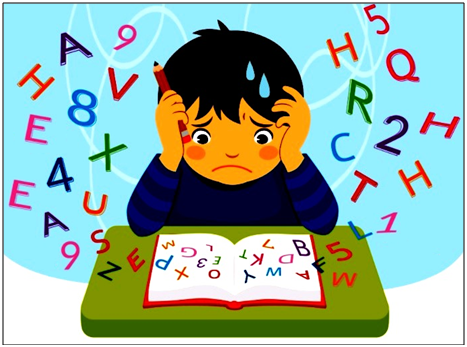When children struggle to read and write at school, most parents consider them to be disinterested in studies, careless and so on. However, it might be a case of dyslexia. Dyslexia is a common issue of specific learning difficulty that a large number of children across the globe suffer from. But despite its widespread presence, a very small percentage of the population in India is aware of this condition.

As per a 2016 report by Dyslexia Association of India, as many as 15 per cent students enrolled in schools in India are identified as dyslexic.
Dyslexia can range from mild to severe and in a lot of cases may be associated with other learning difficulties. Thus, the degree and nature of dyslexia that a child suffers varies as per the associated conditions.
Early signs and symptoms
Dyslexia is a neurological condition that influences the reading, spelling and writing ability of a person. Dyslexic is a specific learning difficulty and the condition varies from person to person. Below are some symptoms of dyslexia:
- Late talking
- Slow in learning new words
- Difficulty in forming correct words
- Difficulty in remembering names or numbers
- Speech impairment
- Poor vocabulary
- Difficulty decoding symbols and sounds
- Problem in reading (reading aloud) as compared to other children of the same age
- Takes long time to complete tasks involving reading and writing
- Difficulty in pronouncing unfamiliar words
Measures to be taken: Role of Parents
Parents can play a key role in helping their dyslexic child to overcome the condition and feel better. As such, parents stay with the child for the maximum time of the day and the children rely on their parents for support and comfort.
Parents can focus on things as mentioned below to help dyslexic children:
- Address the problem at the earliest: If you get the slightest hint that your child might have dyslexia, take immediate action by speaking with a doctor and taking proper measures. If you could detect the problem early, it becomes easy to achieve success.
- Work with the child to help him cope with studies: A dyslexic child might find it difficult to cope with his studies. So help him as much as possible so that he can stay abreast with his friends in school. Also, talk to his teachers to know about how the school could help your child to succeed.
- Encourage your child to read aloud: Read stories to your child and later encourage the child to read aloud in front of you. Set aside some time for reading during the day. Let the child realize that reading is fun.
- Support your child: Dyslexia might affect your child with low self-esteem. So, encourage your child with a lot of affection and support. Be the strength of your child. Praise him/her for any small achievement.
- Explain the condition to your child: Talk to your child about dyslexia. Let him/her know the condition and also that the child is not at any fault. Understanding the problem better will help the child to cope better.
Besides, you must provide a suitable environment at home for the child to study freely. Allow the child proper rest and sleep as well as a healthy lifestyle and healthy food. Limit screen time and make your child interested in reading. You can also join a support group to stay in touch with other parents with children in similar situations. This way you will receive a lot of emotional support to help your child offer better facilities for complete recovery.
Some facts about Dyslexia
- Dyslexia is not a disease.
- Dyslexia doesn’t imply that the child has low IQ
- Dyslexic children finds it difficult to read with traditional ways
- Dyslexia can be overcome by practice
- Dyslexic children are good with non-traditional ways of learning, e.g. flash cards
- Using audio-visual can allow dyslexic children to understand any subject better
Role of child counselor
When ignored or not diagnosed at an early stage, Dyslexic child is likely to suffer difficulties of reading even during adulthood.
Thus, it is very important to diagnose and treat dyslexia at an early stage. If your child finds it difficult to control his dyslexia despite support, you must consult with a counselor. Visiting a child counselor would surely help positively. The counselor could help the child to concentrate on his strengths. They can help the child to overcome negativity and to deal with shame, anger, anxiety and so on that most dyslexic children face in society.
Zoylu.com has always been compassionate about dyslexia and towards the children who suffer the same. Zoylu.com has been a great help for dyslexic children. Parents can reach out to proper child counselling services through Zoylu’s network. We at zoylu.com understand that Dyslexic kids need motivation to discover their creativity and strength. We encourage dyslexic kids to pursue their passion at the best.

